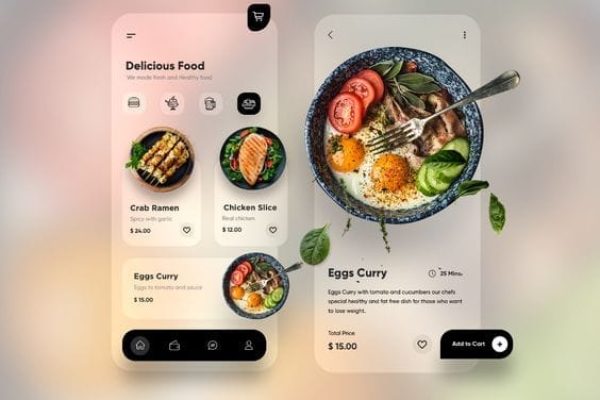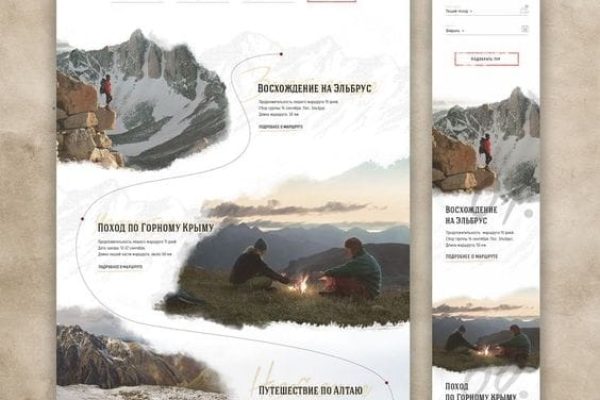In an era where smartphones are no longer just a luxury but a vital part of everyday life, the importance of mobile-kind websites has skyrocketed, notably in vibrant markets like Morocco. As digital connectivity weaves itself into the fabric of daily existence, businesses and entrepreneurs are discovering that a website’s adaptability to mobile devices can make or break their online presence. Yet, what exactly defines a mobile-friendly website in the Moroccan context? From the bustling souks of marrakech to the tranquil beaches of Agadir, the nuances of user experience vary across diverse cultural landscapes. In this article, we delve into the basic components that contribute to a website’s mobile-friendliness in Morocco, examining local user behaviors, design principles, and technological advancements that cater specifically to this dynamic region. Join us as we explore the intersection of technology and culture, uncovering the keys to engaging a mobile-savvy audience in the heart of North Africa.
In today’s fast-paced digital landscape, enhancing user experience through responsive design is vital for attracting and retaining visitors, especially in Morocco where mobile usage is on the rise. A responsive website automatically adjusts to various screen sizes, allowing users to navigate effortlessly, whether on a smartphone, tablet, or desktop. Critical factors to consider include:
- Fluid grid layouts: Utilizing percentages for widths instead of fixed pixel values.
- Flexible images: Ensuring images resize within their containing elements.
- Media queries: applying CSS rules based on device characteristics for tailored experiences.
Moreover, optimizing load speeds for diverse internet connections is crucial for keeping users engaged. In a region where internet connectivity can vary widely, slow load times lead to increased bounce rates. To address this, website owners should focus on the following strategies:
- Minimizing HTTP requests: Streamlining the number of resources loaded on the page.
- Image optimization: Compressing images without sacrificing quality to improve loading time.
- Leveraging browser caching: Allowing browsers to store certain data for faster reload times.
Another notable aspect is the importance of local content and language accessibility.Websites must cater to the linguistic diversity of morocco by providing content in Arabic, French, and Amazigh to connect with a broader audience. Localizing content not only makes it accessible but also enhances user trust and engagement. Furthermore, implementing mobile-first SEO strategies can ensure that Moroccan websites rank higher in search results. some effective tactics include:
- Prioritizing mobile indexing: Optimizing for mobile first as Google uses mobile versions for indexing and ranking.
- Local keyword optimization: Incorporating region-specific terms that resonate with Moroccan users.
- Fast loading times: Mobile performance is a ranking factor, making it essential to refine speed.
Q&A
Q&A: What Makes a Website Mobile-Friendly in Morocco?
Q1: What does it mean for a website to be mobile-friendly?
A1: A mobile-friendly website is designed to provide a seamless experience for users accessing the site on smartphones and tablets. This includes responsive design,easy navigation,fast loading speeds,and content that is easily readable without requiring zooming.
Q2: Why is having a mobile-friendly website crucial in Morocco?
A2: In Morocco, mobile internet usage has skyrocketed, with a significant majority of the population accessing the web through mobile devices. A mobile-friendly site ensures businesses can reach and engage this vast audience effectively, enhancing user experience and increasing conversion rates.
Q3: What specific features should be included for a website to be considered mobile-friendly in Morocco?
A3: Essential features include:
– Responsive Design: The layout adapts to different screen sizes.
– Fast Loading Times: optimizing images and reducing unneeded elements can help.
– Accessible Navigation: Menus should be simplified, targeting ease of use with touch screens.
– Readable Text: Font sizes should be legible without zooming, with an appropriate line height and contrast for readability.
Q4: How can cultural aspects influence mobile-friendly design in Morocco?
A4: Understanding Moroccan culture is vital. As a notable example, incorporating local languages, such as Arabic and French, along with culturally relevant imagery and content, can improve user engagement and make the website feel more relatable to the target audience.
Q5: Are there specific tools or testing methods to assess mobile-friendliness?
A5: Yes, several tools can definitely help gauge mobile-friendliness, including Google’s Mobile-Friendly Test and PageSpeed Insights. These tools analyze website performance on mobile devices and provide suggestions for improvement.
Q6: What role do social media and messaging apps play in mobile usage in Morocco?
A6: Social media and messaging apps are incredibly popular in Morocco, providing pathways for businesses to reach consumers.A mobile-friendly site can integrate with social media platforms, allowing for seamless sharing and engagement, which is crucial given the high levels of interaction on these platforms.
Q7: How does content strategy impact mobile-friendliness in Morocco?
A7: Content should be concise and engaging, as mobile users tend to prefer speedy, digestible information. Incorporating multimedia elements like videos or interactive content can enhance engagement but must be optimized for quick loading to maintain a mobile-friendly experience.
Q8: Can a website be mobile-friendly and still maintain its desktop version?
A8: Absolutely! A well-designed responsive website can coexist in both formats, adapting its layout based on the user’s device. This ensures that both desktop and mobile users enjoy an optimal experience tailored to their needs.
Q9: What common mistakes should be avoided when designing a mobile-friendly website?
A9: Common pitfalls include:
– Cluttered layouts that overwhelm users.
– Slow loading times caused by heavy images or scripts.
- Small touch targets that frustrate navigation.
– Ignoring the importance of local language and culture.
Q10: What future trends should Moroccan businesses watch for in mobile web design?
A10: Trends to watch include the rise of Progressive Web Apps (PWAs), enhanced use of artificial intelligence for personalized experiences, and increased focus on accessibility features. These innovations can further enhance user engagement and improve overall mobile experiences.
Conclusively, creating a mobile-friendly website in Morocco is not just beneficial, it’s essential. Paying attention to local preferences, leveraging technology effectively, and maintaining simplicity will ensure businesses thrive in the mobile-first era.
Final Thoughts
creating a mobile-friendly website in Morocco is not just a technical requirement, but a gateway to connecting with a growing audience that relies heavily on their smartphones for information and services. By understanding the unique needs of Moroccan users and the local digital landscape, businesses can design websites that not only look good on mobile devices but also provide seamless navigation, fast loading times, and relevant content. As the digital world continues to evolve,investing in mobile optimization will not only enhance user experience but also foster brand loyalty and drive success in the competitive online market.Embrace the mobile revolution and watch as your website transforms into a tool that resonates with users across the vibrant tapestry of Morocco.











